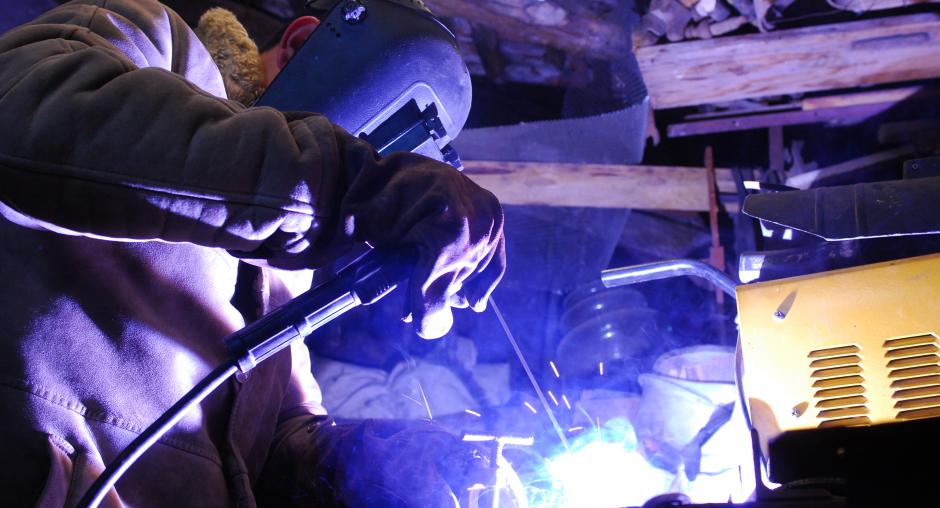OSCE Mission helps disadvantaged in Kosovo find jobs
Habib Tahiri, a 32-year-old Kosovo Roma from Gjurkovc/Đurkovce village in central Kosovo now has a job. After more than ten years of chasing any work and income that would help him support his family of nine he has become a welder, thanks to help from the OSCE Mission in Kosovo.
Habib was one of eight Roma from different Kosovo regions who attended a six-month vocational course on welding techniques, organized by the OSCE Mission, and delivered by a trainer from the Don Bosco NGO at its professional school. Habib and two others were hired straight from the course, while five others subsequently received job offers.
Providing marketable skills
Kosovo suffers from high unemployment – estimated at 47 percent by the World Bank. In addition, ethnic communities, including Kosovo Roma, face discrimination. Lack of access to education can limit chances to compete fairly in an already saturated employment market.
“We wanted to help change this situation,” says Bujar Mallakaj from the Mission’s Human Rights and Communities Department. “Our logic was that a project that would equip members of ethnic communities with practical skills such as welding was likely to get them a job and yield quick, sustainable benefits.”
Feeling secure
For Habib the training provided more than he expected. “We’ve learned so many things. We were a good team and had a great trainer. I feel that based on what we learned there, not only can I work in welding, but I could also train others,” he says.
For him this was a rare educational opportunity since completing primary education in 1994. The course, which ran from April to November 2011, gave him a profession he lacked and a job he needed. “Up until now my family and I depended on daily allowances for jobs I would occasionally get, and 70 Euro of monthly aid. I now have a steady income and feel secure.”
Apart from getting a job, Habib is putting his new skills and creativity to practice at home and for his neighbours too. To test his skills he decided to build a gate for his yard that had been lacking for some time. The new gate served as a good example for the neighbours to see that Tahiri is serious about welding. “Work hasn’t stopped for me although the company is now having a break as we can’t work with metals in cold temperatures. I’ve had people come and ask if I could help them with various things,” says Habibi. “I fixed a cement mixer for a neighbour just last week,” he adds.
A profession to keep
Habib says he feels comfortable with his new profession. “It was nice of the company to hire us and offer the rest of the fellow trainees a job. It encouraged me to give my best,” he says. “I plan to stick with them for as long as there’s work, but if it stops there, I will continue welding privately: I feel like I can make a living from it.”
Drawing on the success of the training, Bujar says there are plans for a similar project in 2012. “This time we will increase the number of attendees to 12, four of them to be women, and we’ll offer plumbing and food processing training as well.”
Bujar explains that while an extensive legislative framework in Kosovo helps protect human rights, its mere existence does not automatically translate into sustainable livelihoods and economic and social integration.
“What is needed is employment. And though this first project was rather small it has produced good results, changing the lives of three families for the better.”
Written by Mevlyde Salihu and Nikola Gaon

